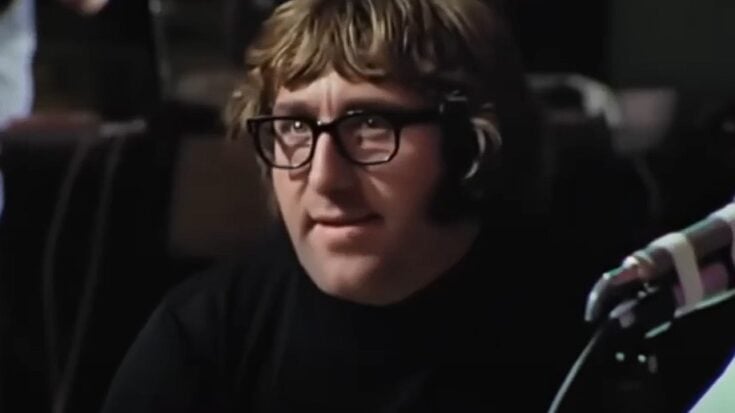The Sad History Of Beatles Road Manager Mal Evans

via You Can't Unhear This / YouTube
The Beatles’ story is often told as a fairy tale of four Liverpool lads who changed the world with their music. But behind the glamour and genius lies a trail of personal losses and emotional strain. From the early deaths of their mothers to the shocking murder of John Lennon, sorrow was never far from their orbit.
Among the less-known, but equally tragic figures in their circle was Mal Evans — a towering presence behind the scenes, both physically and emotionally. As their loyal road manager, bodyguard, and general fixer, Evans was a constant in the Beatles’ chaotic rise and eventual break-up. Yet his story is often buried beneath the headlines of the band he served so faithfully.
Evans’ life ended in a devastating and controversial way, far from the stages and studios he once inhabited. His tale isn’t just a footnote in rock history—it’s a reminder of how fame can sometimes leave even the closest behind.
View this post on Instagram
The Fifth Beatle Behind the Curtain
Long before the screaming fans and transatlantic fame, Mal Evans was just a regular guy from Liverpool working as a telephone engineer. His path crossed with The Beatles while working as a bouncer at the Cavern Club, where he quickly became a trusted presence among the band and their inner circle. Not long after, he found himself driving the group to gigs and radio interviews, filling in for a sick Neil Aspinall—and he never really left.
His role morphed from simple chauffeur to an essential piece of the Beatles machine. Whether it was handling security, hauling equipment, or even forging autographs for airport giveaways, Evans was always the guy who got things done. As the band’s fame exploded, so did his responsibilities—he became their protector, errand man, and confidant.
He wasn’t just muscle; he had moments of creativity, too. When Paul McCartney asked him to jot down his stoned ramblings during a pot-fueled hangout with Bob Dylan, Mal did so without hesitation. He was there for the mundane and the magical, woven into the very fabric of Beatlemania.
View this post on Instagram
A Quiet Collapse After the Break-Up
When The Beatles dissolved in 1970, the effect on Mal Evans was seismic. His life had revolved around the band for nearly a decade, and suddenly the purpose that had defined his daily existence was gone. Although he dabbled in producing—most notably for Keith Moon—he never truly found his footing again in the post-Beatles era.
By the mid-1970s, Evans was estranged from his wife and living with a new girlfriend, Fran, in Los Angeles. He was working on a memoir about his years with The Beatles, a project that may have given him a sense of closure or renewed purpose. But behind the scenes, friends noticed a decline—he was struggling emotionally, and reportedly mixing valium with alcohol.
On January 5, 1976, that struggle turned fatal. After a tense episode at home involving a gun that was allegedly unloaded, Fran called the police for help. The LAPD entered the house and, misinterpreting the situation, fatally shot Evans. He was just 40 years old.
View this post on Instagram
Aftermath and the Vanishing Legacy
Mal Evans’ death was not just shocking—it was chaotic. In the aftermath, many of his possessions went missing, including the nearly finished manuscript of his memoir. The very life story he had hoped to share was swept into obscurity, buried beneath bureaucracy and negligence.
His ashes, intended for his family back in England, were temporarily lost by the British postal system. This postscript of misfortune only deepened the tragedy for those who had loved and known him. His death was mourned quietly, largely overshadowed by the celebrity-driven news cycle of the time.
For years, Evans’ legacy remained fragmented. Despite working for the biggest band in history, he died with little to show for it materially. And though the surviving Beatles remembered him fondly, their affection didn’t translate into the broader recognition his contributions truly deserved.
View this post on Instagram
A Belated Spotlight
In more recent years, there’s been a quiet revival of interest in Mal Evans. His name resurfaced thanks to Peter Jackson’s 2021 documentary The Beatles: Get Back, which featured tender moments of him helping the band in the studio—his anvil hits on “Maxwell’s Silver Hammer” serving as both literal and symbolic punctuation to his understated role.
The same year, it was announced that a biography dedicated entirely to Evans would be released, finally giving him a platform to be recognized beyond the liner notes. Fans were reminded of the gentle, smiling giant always just out of frame in Beatles photos and videos.
For those steeped in Beatles lore, Mal Evans is no longer just a background figure. He’s a symbol of the countless lives orbiting greatness, sometimes lost in its shadow but no less essential to its glow.












